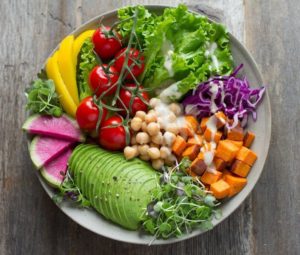 01/5 How to combat nutritional deficiencies on a vegan diet
01/5 How to combat nutritional deficiencies on a vegan diet
With the increasing awareness towards animal cruelty and being vegan prevalent amongst celebrities, there’s been a rise in people adopting veganism. Being vegan can be a big lifestyle change and also mean that you derive your nutritional needs from plant-based produce, entirely.
Given that while there are incredibly good health benefits a well-planned vegan diet has to offer, but it can also be a deficient diet if you don’t source your food well and can even lead to serious health issues due to the nutritional deficiencies, invalidating all its benefits. For example, primarily, When a person follows veganism, he/she desists oneself from consuming meat, eggs, dairy products or any animal-derived product which are inevitably a great source of vitamin B12. However, if a person fails to add B12 supplements to the daily diet, then no wonder he can be vulnerable to a blood deficiency or some irreversible neurological damage.
Here are some steps that can help you to combat nutritional deficiencies when observing veganism.
02/5 Include B12 rich foods and supplements
A deficiency of Vitamin B12 can make you fall prey to anaemia or ataxia or memory-related problems, that too because of your diet practice. Hence try increasing the amount of vitamin B12 intake. Make sure that you add rich sources of multivitamins, iron, magnesium and fibre such as soya bean, soy or almond milk, mushrooms, avocados to ward off the unnecessary vitamin deficiency.
03/5 Have plenty of iron-rich foods
Iron is the most vital element for blood production and the main constituent of haemoglobin as well as myoglobin. It is not only essential for the blood but also for respiratory activity, energy metabolism, synthesis of collagen and neurotransmitters. Include ample amounts of beans and legumes as they are a great source of iron, folate, magnesium, and potassium. Also, try combining them with citric fruits or vegetables in order to ease the iron absorption process.
04/5 Include essential nuts and seeds in your meals
When your body flushes out harmful toxic elements, it can automatically function and respond better. Having seeds routinely can help you to overcome uninvited fatigue and energy loss. Seeds such as chia, flax, sunflower, watermelon and pumpkin contain a good amount of monounsaturated fats, vitamins, fibre and polyunsaturated fats (omega-3 fatty acids) aids the metabolic activity of the body as well as combats certain nutrient deficiencies.
05/5 Green leafy vegetables are a must-have
Green leafy vegetables are a rich source of protein, dietary fibres, vitamin A, C, K, carotenoids, folate, and manganese. In order to keep distance from blood or nutrient deficiencies, increase the intake of spinach, kale or broccoli etc. Remember to go green to keep your bones and immune health happy.




































 01/5
01/5












